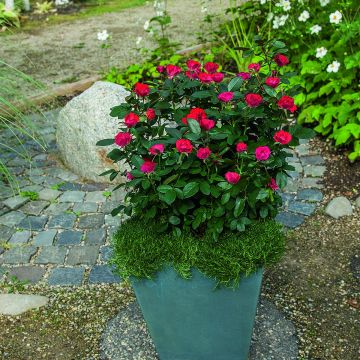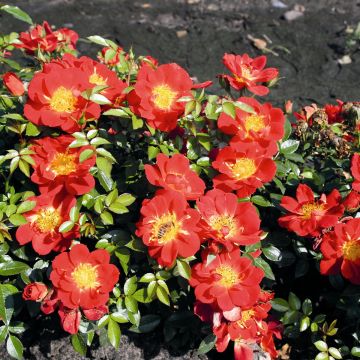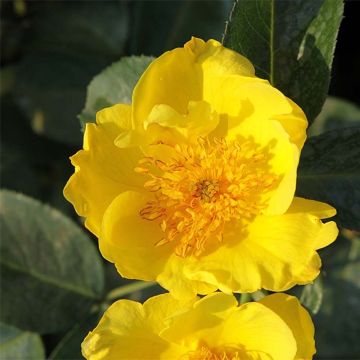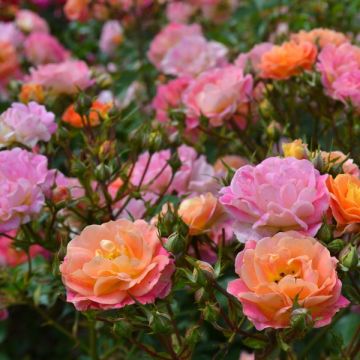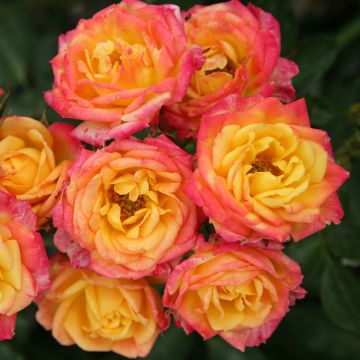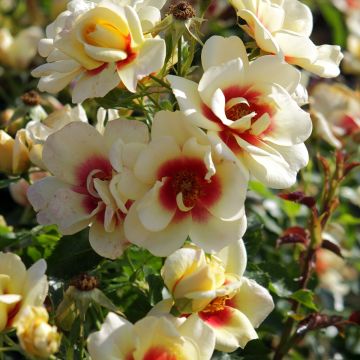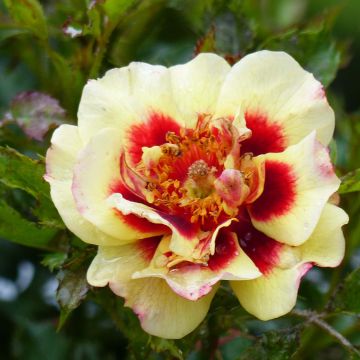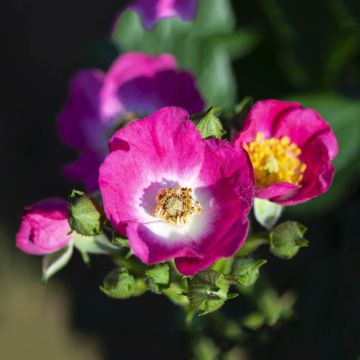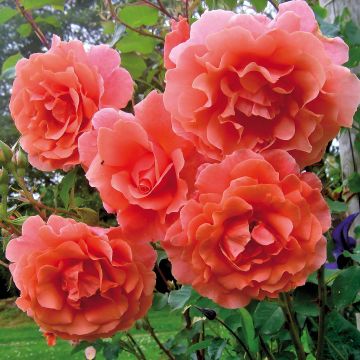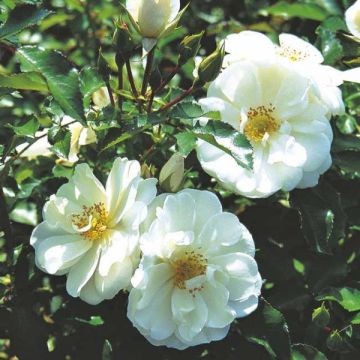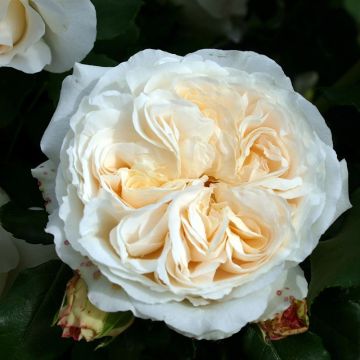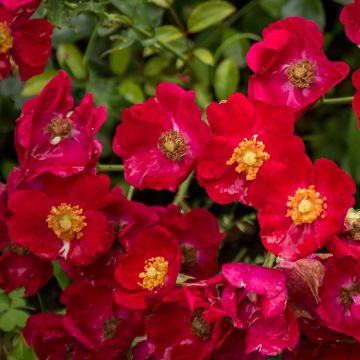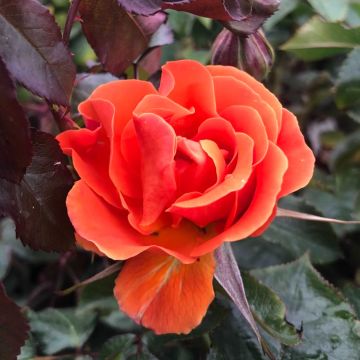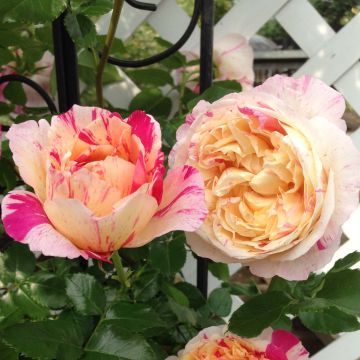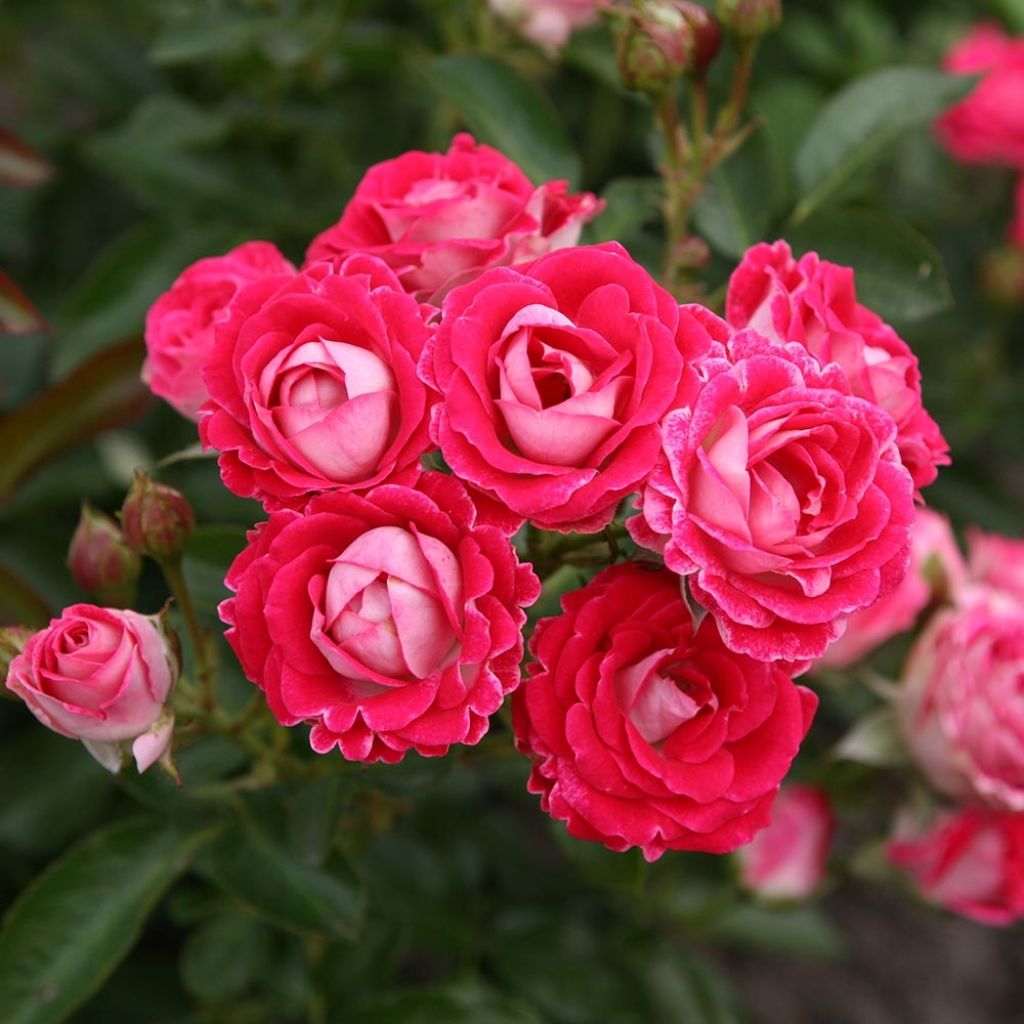

Rosa x polyantha 'Sans Contrainte' 'Anne Roumanoff' - Shrub Rose
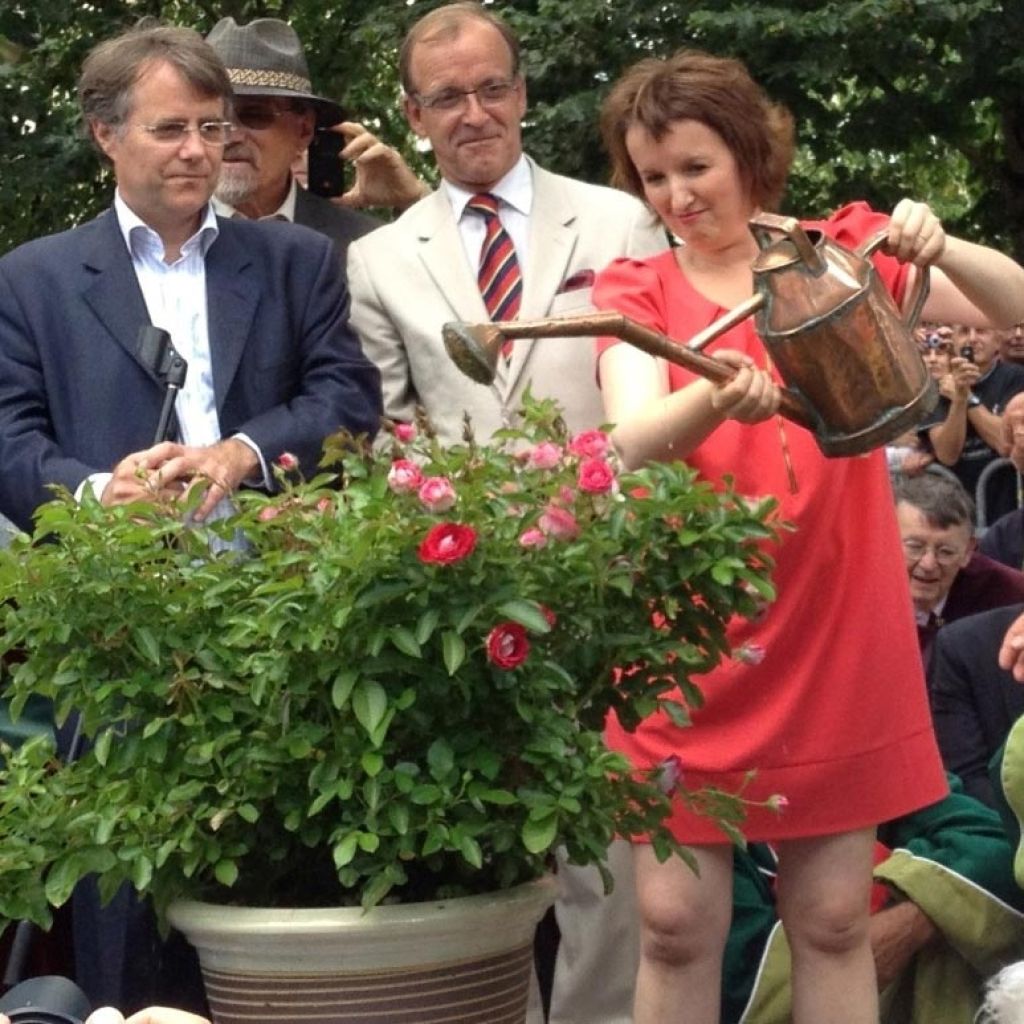

Rosa x polyantha 'Sans Contrainte' 'Anne Roumanoff' - Shrub Rose
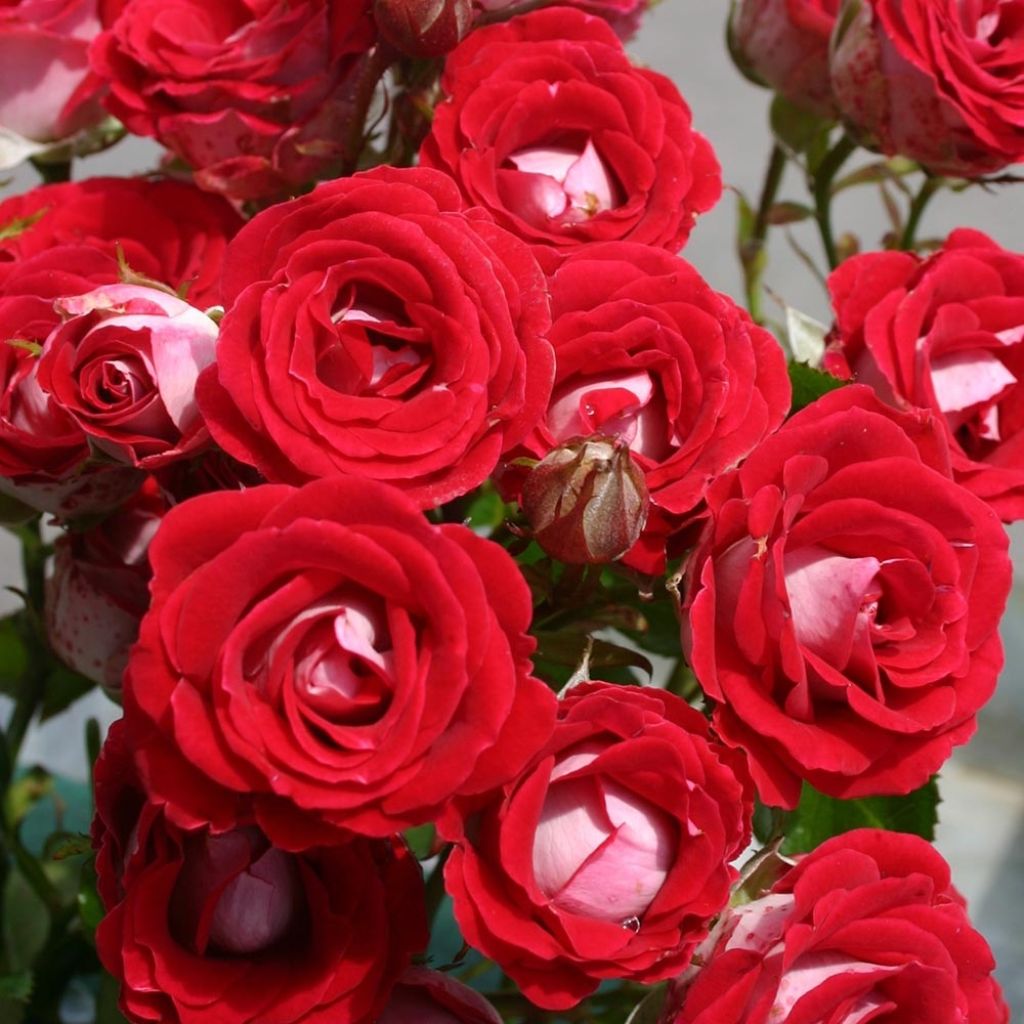

Rosa x polyantha 'Sans Contrainte' 'Anne Roumanoff' - Shrub Rose
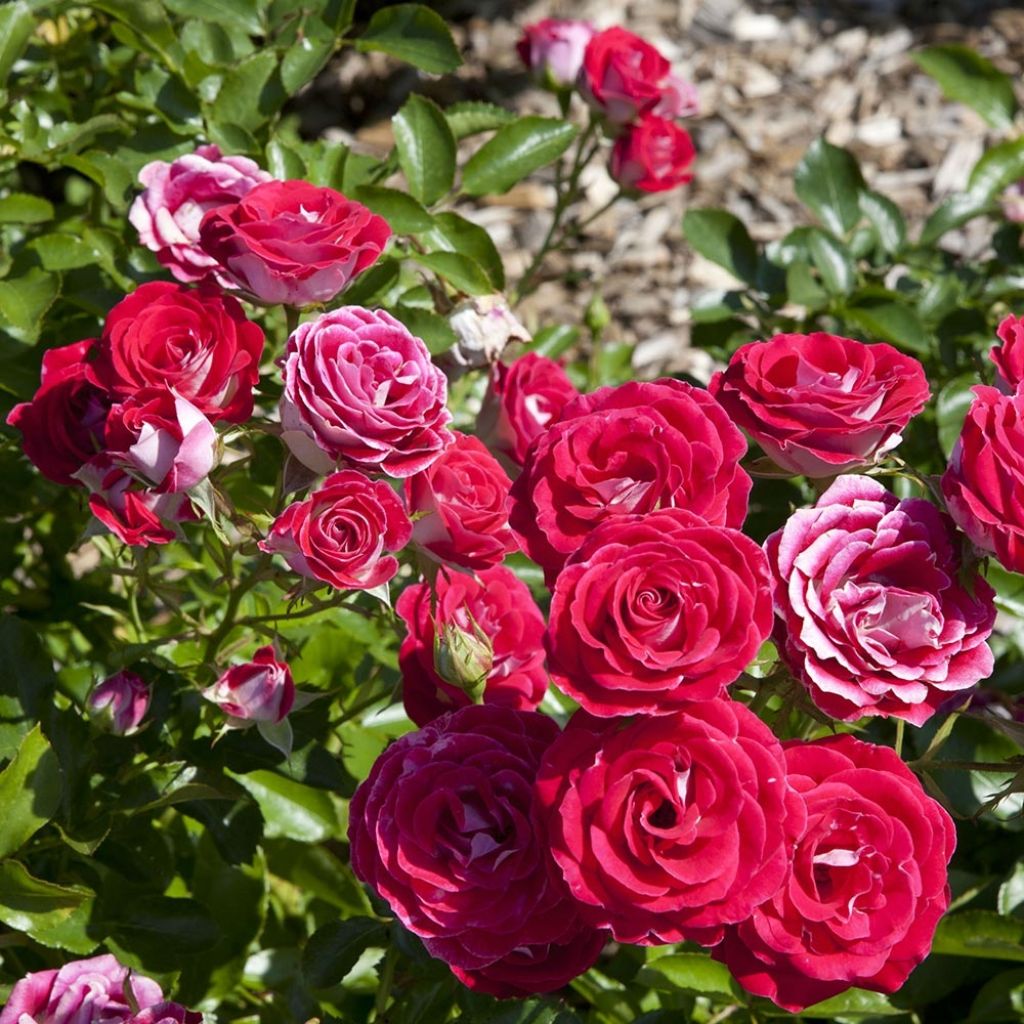

Rosa x polyantha 'Sans Contrainte' 'Anne Roumanoff' - Shrub Rose
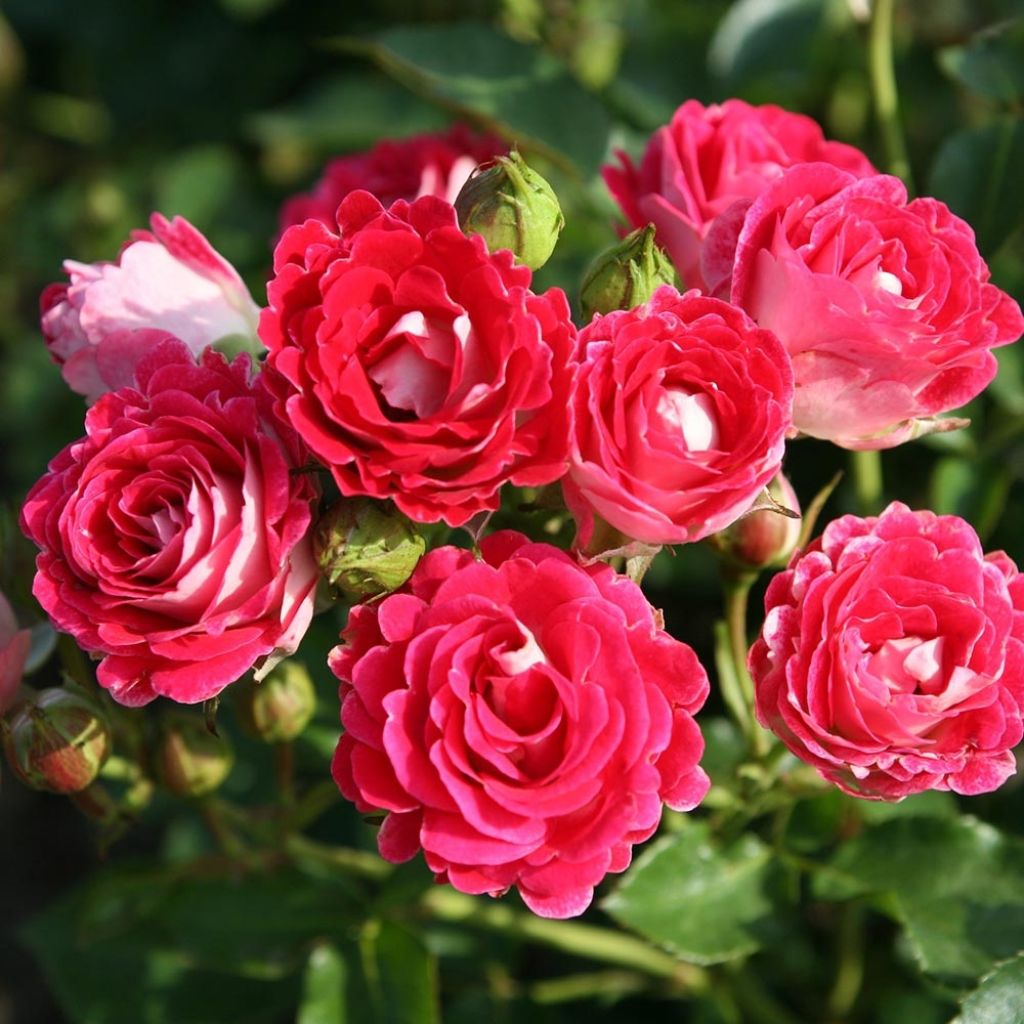

Rosa x polyantha 'Sans Contrainte' 'Anne Roumanoff' - Shrub Rose
Rosa x polyantha 'Sans Contrainte' 'Anne Roumanoff' - Shrub Rose
Rosa x polyantha Sans Contrainte® Anne Roumanoff® korburox
Korburox
Thanks to Jenny, who prepared the order, and Katy from the shipping department, the rose bush I received looks healthy. I have planted it near the 'Schöne Koblenzerin' variety and now I'm waiting to see how it develops... whether it takes root or not.
Thierry, 24/08/2022
Why not try an alternative variety in stock?
View all →This plant carries a 24 months recovery warranty
More information
We guarantee the quality of our plants for a full growing cycle, and will replace at our expense any plant that fails to recover under normal climatic and planting conditions.
From €5.90 for pickup delivery and €6.90 for home delivery
Express home delivery from €8.90.
Delivery to Corse prohibited: UE law prohibits the import of this plant from mainland France to Corse as part of the fight against Xylella fastidiosa. Please accept our sincere apologies.
More information

Does this plant fit my garden?
Set up your Plantfit profile →
Description
The 'Anne Roumanoff' Sans Contrainte rose bush is part of a series of particularly compact and floriferous roses created by German rose breeder Kordes. This lovely creation meets the requirements of the highly selective German ADR label, which rewards the most disease-resistant varieties, robust and hardy, easy to grow anywhere and by any gardener. 'Anne Roumanoff' produces tirelessly adorable small semi-double bicolour roses, red with white reverses, set against a beautiful lush green foliage, transforming this small bush into a radiant cushion throughout the growing season. With its small size and dense habit, this bright rose bush is perfect in borders, flower beds or even a pretty pot on the terrace.
The flowers of Rosa Anne Roumanoff (korburox) are gathered in terminal clusters and come from the polyantha rose, an old hybrid resulting from Rosa multiflora and Rosa chinensis. This excellent German variety was introduced in 2011 by German rose breeder Kordes. The 'Sans Contraintes' range brings together very repeat-flowering, floriferous roses capable of adapting to difficult growing conditions and highly resistant to diseases and pests. It requires little maintenance other than simple pruning in March. All of them hold the ADR label.
This well-behaved small bush has a bushy and branched, very dense habit. It will reach approximately 50 cm (20in) in all directions in a few years. The 4 cm (2in) semi-double flowers, gathered in clusters of 5 to 6 flowers, are continuously produced from June to October if the soil remains moist. The flower buds in this 'Anne Roumanoff' variety are pale white-pink, more or less edged and splashed with pink-red. They open into beautifully formed, turbinate, bicolour corollas with a velvety red-pink, each petal revealing its almost white reverse. This disease-resistant variety develops elegant, well-furnished foliage in a vibrant, glossy green. Its stems are spiny.
The 'Anne Roumanoff' rose bush adapts to all soils that are not too dry and to all climates, which allows it to be welcomed without reservation in many regions. It works wonders as a border, in a flower bed, in a pot on the terrace, or on a large slope where it will cover the ground. It can also be planted in groups of 3 plants arranged in a triangle in the centre of a small flower bed. Plant it in mass or with pink (Maman Turbat, The Fairy) or white (Swany, Marie Pavie) ground-cover roses to highlight the path of a pathway or the beds of light or opulent shrubs and perennials. It can be paired with perennial geraniums (Geranium Blue Cloud, Anne Folkard, Nimbus, Orion), bellflowers (lactiflora, rapunculoides), catmints, foxgloves, or other perennial salvias. It blends perfectly with pink or white flowering shrub roses in a romantic garden.
Report an error about the product description
Rosa x polyantha 'Sans Contrainte' 'Anne Roumanoff' - Shrub Rose in pictures
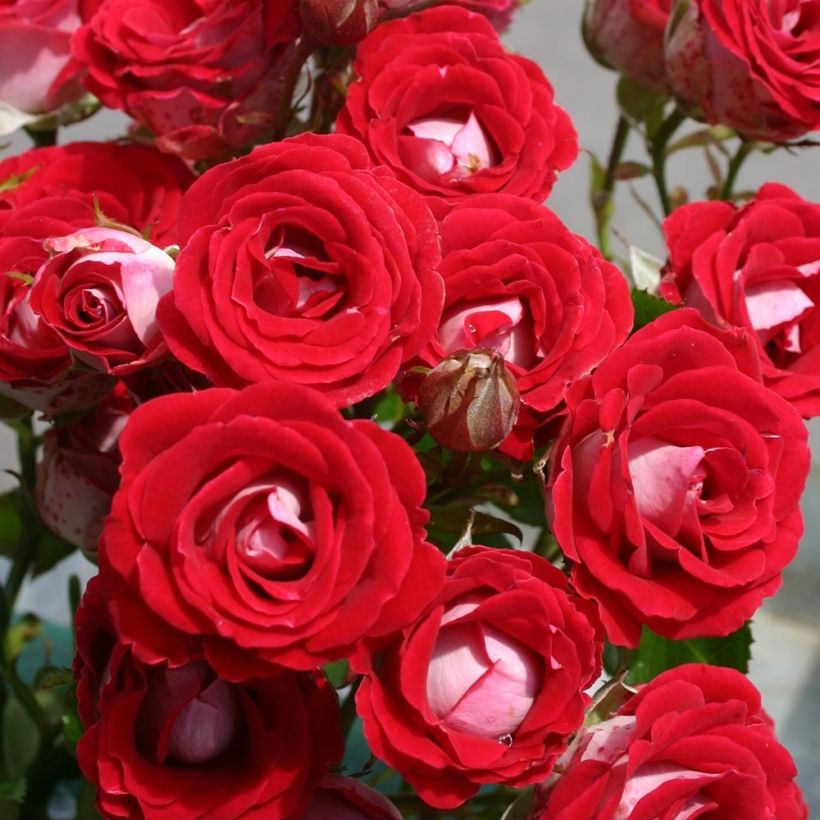

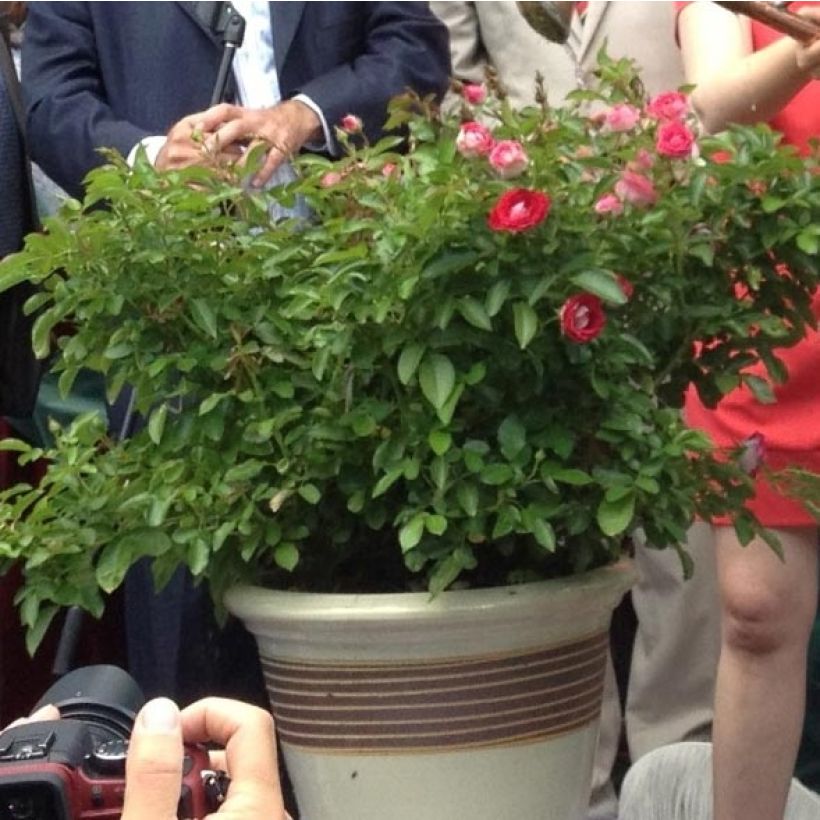

Plant habit
Flowering
Foliage
Botanical data
Rosa
x polyantha
Sans Contrainte® Anne Roumanoff® korburox
Rosaceae
Korburox
Cultivar or hybrid
Other Dwarf and mini Roses
Planting and care
The Kordes 'Sans Contrainte' roses are easy to grow in ordinary garden soil that has been well-prepared, loosened, enriched, and not too dry in summer. They thrive in a sunny position that is sheltered from the scorching midday rays and strong winds. To plant them in a pot, work the soil to a depth of 25 cubic cm, crumble the soil well, and place a base amendment, such as blood, fish, and bone, at the bottom of the planting hole. Position the plant without its pot by covering the top of the root ball with 3 cm (1 in) of soil, fill in, and water generously to remove air pockets. In dry weather, it is necessary to water regularly for a few weeks to facilitate root development. Also, remember to provide your rose with a special rose fertilizer that stimulates plant flowering. They are easy to cultivate in pots with good horticultural soil, regular watering, and fertiliser applications.
Roses may develop unsightly spots at the end of summer, but this is a natural occurrence and doesn't harm the rose's growth.
Planting period
Intended location
Care
-
, onOrder confirmed
Reply from on Promesse de fleurs
Roses by purpose
Haven't found what you were looking for?
Hardiness is the lowest winter temperature a plant can endure without suffering serious damage or even dying. However, hardiness is affected by location (a sheltered area, such as a patio), protection (winter cover) and soil type (hardiness is improved by well-drained soil).

Photo Sharing Terms & Conditions
In order to encourage gardeners to interact and share their experiences, Promesse de fleurs offers various media enabling content to be uploaded onto its Site - in particular via the ‘Photo sharing’ module.
The User agrees to refrain from:
- Posting any content that is illegal, prejudicial, insulting, racist, inciteful to hatred, revisionist, contrary to public decency, that infringes on privacy or on the privacy rights of third parties, in particular the publicity rights of persons and goods, intellectual property rights, or the right to privacy.
- Submitting content on behalf of a third party;
- Impersonate the identity of a third party and/or publish any personal information about a third party;
In general, the User undertakes to refrain from any unethical behaviour.
All Content (in particular text, comments, files, images, photos, videos, creative works, etc.), which may be subject to property or intellectual property rights, image or other private rights, shall remain the property of the User, subject to the limited rights granted by the terms of the licence granted by Promesse de fleurs as stated below. Users are at liberty to publish or not to publish such Content on the Site, notably via the ‘Photo Sharing’ facility, and accept that this Content shall be made public and freely accessible, notably on the Internet.
Users further acknowledge, undertake to have ,and guarantee that they hold all necessary rights and permissions to publish such material on the Site, in particular with regard to the legislation in force pertaining to any privacy, property, intellectual property, image, or contractual rights, or rights of any other nature. By publishing such Content on the Site, Users acknowledge accepting full liability as publishers of the Content within the meaning of the law, and grant Promesse de fleurs, free of charge, an inclusive, worldwide licence for the said Content for the entire duration of its publication, including all reproduction, representation, up/downloading, displaying, performing, transmission, and storage rights.
Users also grant permission for their name to be linked to the Content and accept that this link may not always be made available.
By engaging in posting material, Users consent to their Content becoming automatically accessible on the Internet, in particular on other sites and/or blogs and/or web pages of the Promesse de fleurs site, including in particular social pages and the Promesse de fleurs catalogue.
Users may secure the removal of entrusted content free of charge by issuing a simple request via our contact form.
The flowering period indicated on our website applies to countries and regions located in USDA zone 8 (France, the United Kingdom, Ireland, the Netherlands, etc.)
It will vary according to where you live:
- In zones 9 to 10 (Italy, Spain, Greece, etc.), flowering will occur about 2 to 4 weeks earlier.
- In zones 6 to 7 (Germany, Poland, Slovenia, and lower mountainous regions), flowering will be delayed by 2 to 3 weeks.
- In zone 5 (Central Europe, Scandinavia), blooming will be delayed by 3 to 5 weeks.
In temperate climates, pruning of spring-flowering shrubs (forsythia, spireas, etc.) should be done just after flowering.
Pruning of summer-flowering shrubs (Indian Lilac, Perovskia, etc.) can be done in winter or spring.
In cold regions as well as with frost-sensitive plants, avoid pruning too early when severe frosts may still occur.
The planting period indicated on our website applies to countries and regions located in USDA zone 8 (France, United Kingdom, Ireland, Netherlands).
It will vary according to where you live:
- In Mediterranean zones (Marseille, Madrid, Milan, etc.), autumn and winter are the best planting periods.
- In continental zones (Strasbourg, Munich, Vienna, etc.), delay planting by 2 to 3 weeks in spring and bring it forward by 2 to 4 weeks in autumn.
- In mountainous regions (the Alps, Pyrenees, Carpathians, etc.), it is best to plant in late spring (May-June) or late summer (August-September).
The harvesting period indicated on our website applies to countries and regions in USDA zone 8 (France, England, Ireland, the Netherlands).
In colder areas (Scandinavia, Poland, Austria...) fruit and vegetable harvests are likely to be delayed by 3-4 weeks.
In warmer areas (Italy, Spain, Greece, etc.), harvesting will probably take place earlier, depending on weather conditions.
The sowing periods indicated on our website apply to countries and regions within USDA Zone 8 (France, UK, Ireland, Netherlands).
In colder areas (Scandinavia, Poland, Austria...), delay any outdoor sowing by 3-4 weeks, or sow under glass.
In warmer climes (Italy, Spain, Greece, etc.), bring outdoor sowing forward by a few weeks.


































